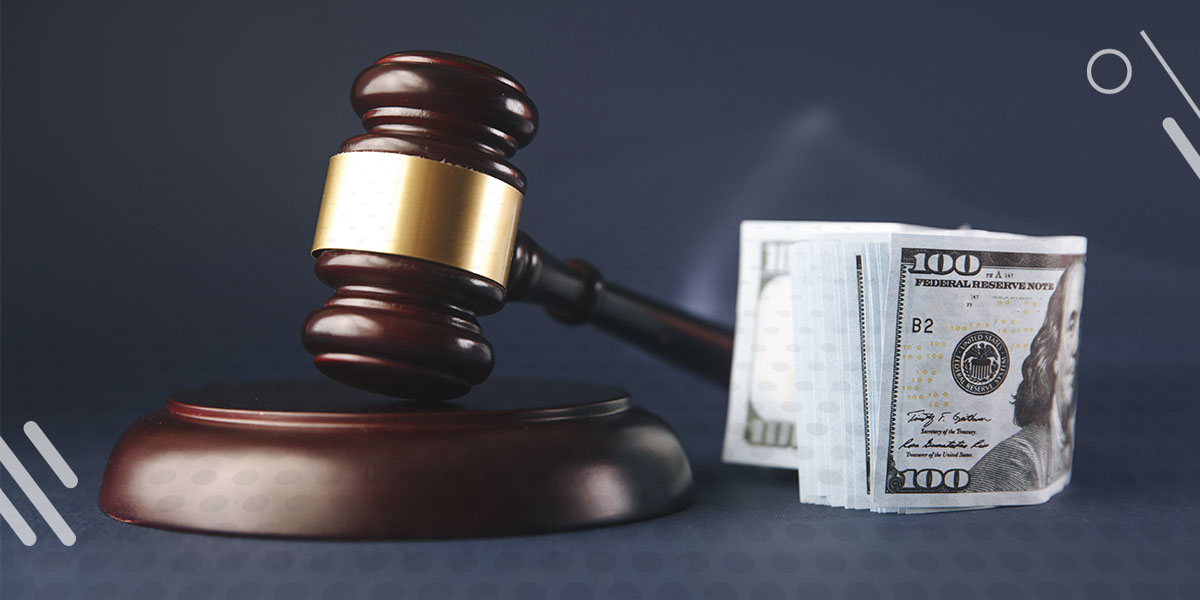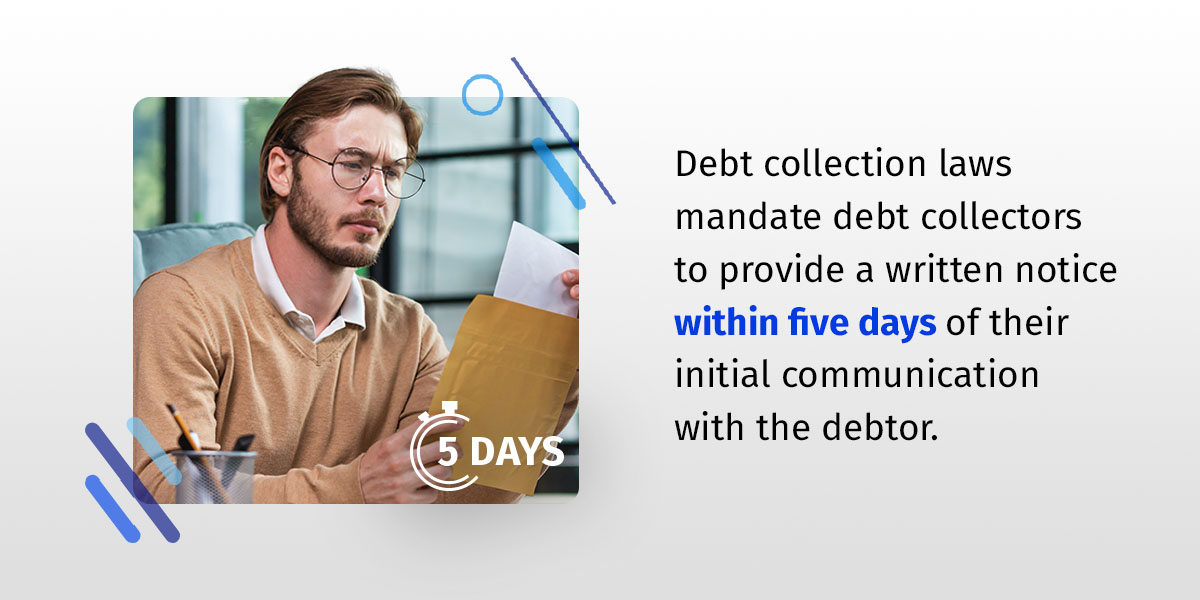- New Customer Inquiries (866) 551-4684
- Customer Service (214) 387-8068
- Make A Payment (866) 558-3328
- Client Portal
- Consumer Support

In Ohio, specific federal and state laws protect debtors — someone who owes money — against unfair debt practices. At the same time, certain state laws extend to creditors, which are the entities that give debtors loans or credit. An original creditor may attempt to collect a past due debt or account itself, or it may hire a debt collector.
Due to debt collection laws, creditors often choose the latter option, working with a third-party debt collection company to collect the debt or account. Below, you’ll learn more about Ohio debt collection laws, including debtors’ rights and the limitation period for debts. Whether you’re a debtor wanting to know your rights or a creditor seeking to remain compliant, our guide is here to help.
There are four main federal and state laws that protect debtors against unfair debt practices in Ohio.
The FDCPA prohibits debt collectors from using deceptive, abusive and unfair debt practices, such as misrepresenting the debt’s legal status, threatening to take action without the right or intention, or sharing the debtor’s information with the public to induce pressure. Additionally, the law requires debt collectors to promptly notify consumers of certain rights, like the right to dispute the debt.
This federal law covers third-party debt collectors, debt collection agencies, debt recovery attorneys and debt buyers. It does not apply to creditors. Complying with the law helps avoid adverse legal implications. Working with professional debt recovery agencies can also enhance your reputation and improve your collection efforts.
The Consumer Financial Protection Bureau’s Debt Collection Rule was promulgated in 2021 to augment debtors’ rights under federal law. It clarifies how collectors must engage with debtors throughout the recovery process.
For example, debt collectors must provide a validation notice when they first communicate with the debtor. Collectors must refrain from calling debt collectors more than seven times within seven consecutive days after contacting the debtor regarding that debt.
The OCSPA has goals similar to the FDCPA’s — to protect consumers against abusive, deceptive and unfair debt collection practices. However, while the FDCPA only applies to third-party debt collectors, the OCSPA extends to some original creditors as well, except for some financial institutions like banks. The law is broad, covering other forms of commercial transactions, so it’s essential to know its limits concerning debt collection.
The statute of limitations provides a timeframe within which a person with a cause of action must institute legal action. A course of action is the combination of facts that entitles a person to a legal remedy. In debt recovery, a cause of action accrues when the debt becomes overdue or the last payment is made. Once the stipulated period elapses, the creditor loses their right to sue.
The effect of a limitation period elapsing is a technical one. When the time passes, the plaintiff or person commencing legal proceedings loses their right to sue. Although they may have a valid claim, their right to seek remedies in court becomes statute-barred. Some creditors adopt non-judicial means to recover the debt, but the debtor is not mandated to pay. Therefore, creditors must proactively collect debt to avoid adverse legal consequences.
Debtors have rights under the Ohio debt collection laws, which debt collection agencies must comply with. These include the following:
Debt collection laws in Ohio prohibit debt collectors from engaging in deceptive, abusive and unfair practices. This includes making misleading or false statements to induce the debtor to pay. Additionally, recovery agencies cannot harass or abuse debtors. Using profanities, obscenities and threats is prohibited. Below are examples of actions the law considers unacceptable:

Debt collection laws mandate debt collectors to provide a written notice within five days of their initial communication with the debtor. The notice will typically contain the creditor’s name, the loan amount, the date the debt was incurred, the debtor’s right to dispute the debt and so on.
Debtors may accept or challenge debts when they receive a written notification from the debt collector. This challenge must usually be brought within 30 days by sending a debt validation letter. A debt validation letter is the debtor’s first line of defense, allowing them to request debt collectors to show proof of debt. In doing so, the debt recovery agent may provide a copy of the original contract or account statement.
Debtors may also send a letter to debt collectors to prevent further contact, which is especially useful when the debtor intends to challenge the debt. When the collector receives the debt validation letter, they must cease all collection efforts until the debt has been verified.
The limitation period for most consumer debts in Ohio is six years from the date the debt became overdue or when the debtor last made a payment, whichever comes first. Once the duration passes, the creditor loses their right to institute legal proceedings. The time restarts when the debtor makes a payment. The debtor may also agree to pay the creditor even after the duration passes.
Below are answers to the frequently asked questions about debt collection in Ohio:
Creditors may categorize loans as bad debts when they are no longer deemed recoverable and must be written off. Creditors may also accept a lesser amount to satisfy the entire debt to encourage debtors to pay something toward the outstanding debt. When the debt becomes stature-barred due to time passage, however, the creditor may not rely on judicial means to collect the debt.
The 7-in-7 rule regulates how often creditors can call debtors to collect debt. Generally, debt recovery agents can call the debtor seven times within a seven-day period concerning a particular debt, so long as no contact is made in any of the attempts. Where the consumer has multiple debts, the rule applies to each debt separately.
Debt collectors are allowed to make efforts to recover debts. Below are examples of the permitted activities:
Southwest Recovery Services, LLC is a professional debt recovery agency with decades of experience helping businesses increase their cash flow. Our professionals practice in various states, including Ohio. We understand the state’s regulatory requirements and possess the resources to help you achieve your goals. Do you want to learn more about our debt recovery services? Contact us now!


We make it fast and easy to refer past due and delinquent accounts to our professional recovery agents. You decide the range on what you will accept on each case, and you ONLY pay a percentage of what we actually collect to resolve the case. Ready to get started, or want to learn more? Fill out this form and a dedicate account manager will call you to get started.